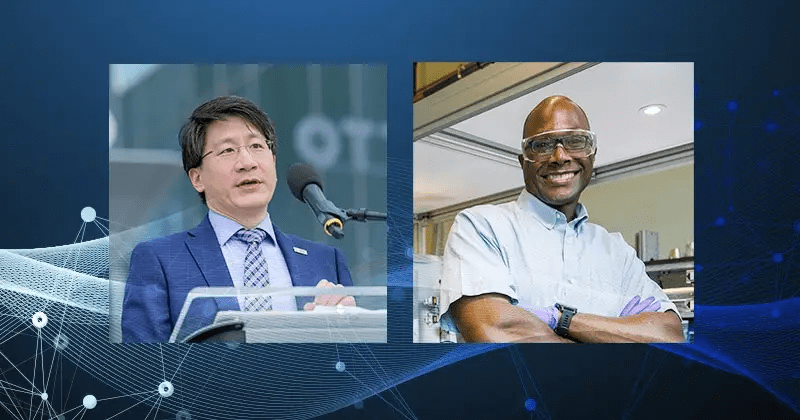NAI Fellows Program recognizes outstanding inventions with tangible impact
The National Academy of Inventors (NAI) has added two University of Delaware researchers to its Fellows Program — Thomas H. Epps, III, and Kelvin Lee. The new honors, announced Tuesday, December 7, are the highest professional distinction awarded to academic inventors.
The NAI Fellows Program recognizes those who have “demonstrated a spirit of innovation in creating or facilitating outstanding inventions that have made a tangible impact on quality of life, economic development and the welfare of society,” according to the program website.
Epps, the Allan and Myra Ferguson Distinguished Professor of Chemical and Biomolecular Engineering at UD with a joint appointment in Materials Science and Engineering, is a leader in nanostructured polymers and biobased materials. He is director of the National Science Foundation-funded Center for Hybrid, Active, and Responsive Materials (CHARM) and co-director of the Center for Plastics Innovation, a U.S. Department of Energy-funded Energy Frontier Research Center. He has five patents, including one licensed to his startup Lignolix Inc., and seven more pending.
He is “an outstanding innovator whose groundbreaking research has had a major impact on chemical engineering in general, and polymer chemistry and macromolecular science in particular,” wrote Levi Thompson, dean of the College of Engineering. “[His] research and innovation have focused on the design, synthesis, processing and characterization of polymeric materials that self-assemble to form nanoscale structures.”
Lee is the Gore Professor of Chemical and Biomolecular Engineering at UD and Institute Director for the National Institute for Innovation in Manufacturing Biopharmaceuticals (NIIMBL). He is known for his impact on U.S. innovation policy in Washington D.C., his work to catalyze advanced manufacturing innovation in the United States, and his impact on diverse technical areas including proteomic methods, Alzheimer’s disease diagnosis and biopharmaceutical manufacturing. He has six patents and one more pending.
“His research is highly cited and used by diverse researchers from academia, government, and industry to advance a quantitative understanding of living systems,” said Joy Goswami, assistant director of Technology Transfer and Corporate Partnerships for UD’s Office of Economic Innovation and Partnerships, who nominated Lee. “His discoveries and innovations related to Creutzfeldt-Jakob disease and Alzheimer’s disease have led to the first antemortem diagnostic tests for these neurodegenerative diseases and the prion test is in routine clinical use around the world.”
To date, NAI fellows hold more than 48,000 U.S. patents, which have generated more than 13,000 licensed technologies and companies, and created more than 1 million jobs. In addition, more than $3 trillion in revenue has been generated based on NAI fellow discoveries.
The 2021 fellow class hails from 116 research universities and governmental and non-profit research institutes worldwide. Those researchers collectively hold over 4,800 U.S. patents. Among the new class of fellows are 33 members of the National Academies of Sciences, Engineering, and Medicine and three Nobel Laureates. Their collective body of research and entrepreneurship covers a broad range of scientific disciplines involved with technology transfer of their inventions for the benefit of society. This year’s class also reflects NAI’s dedicated efforts to promote diversity and inclusion in its membership, with the addition of three outstanding academic female black inventors.
The induction ceremony will be held in June during the 11th annual meeting of the NAI in Phoenix, Arizona.
The complete list of NAI fellows is available on the NAI’s website.

